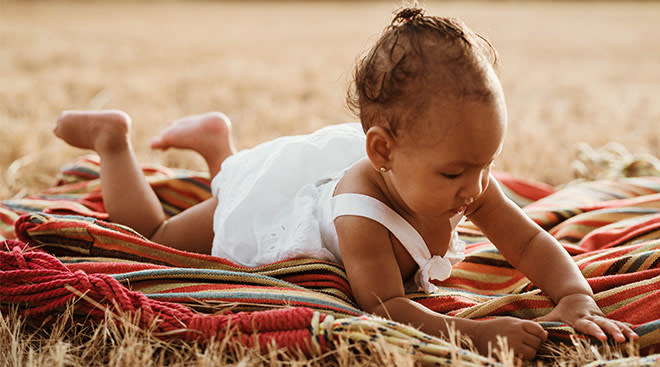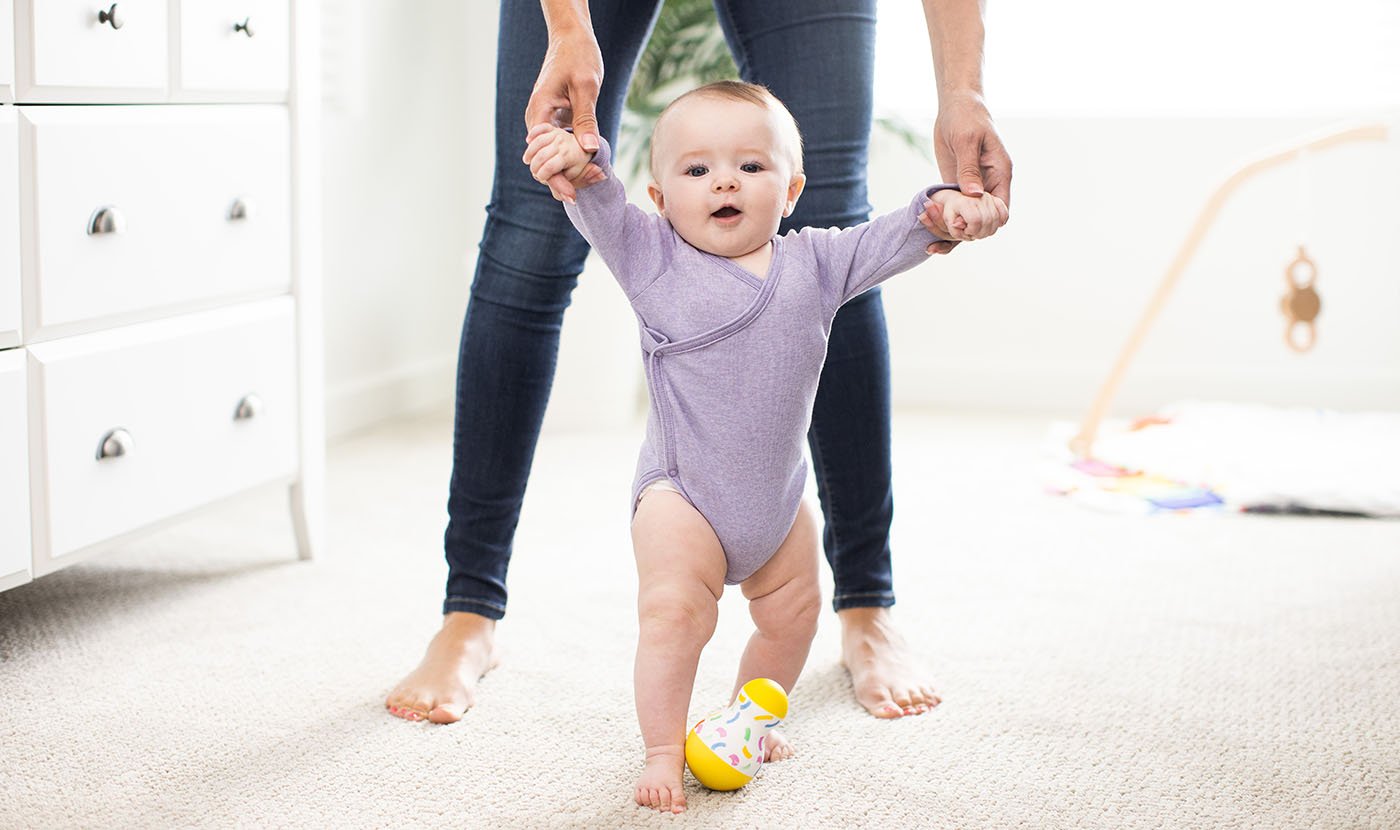Contents
- Stages Of Development
- Tips For Nurturing Development
- Providing A Stimulating Environment:
- Creating A Safe And Engaging Play Space:
- Incorporating Sensory Activities:
- Using Educational Toys And Materials:
- Encouraging Physical Development:
- Tummy Time And Motor Skill Exercises:
- Supporting Crawling, Standing, And Walking:
- Introducing Solid Foods For Oral Motor Development:
- Fostering Cognitive And Language Skills:
- Reading And Talking To Your Baby:
- Singing Songs And Playing Music:
- Engaging In Interactive Play And Games:
- Power Words For Positive Parenting
- Love And Affection
- Bonding With Your Baby
- Skin-To-Skin Contact And Cuddling
- Responding To Your Baby’S Needs
- Patience And Understanding
- Establishing Routines And Predictability
- Empathetic Listening And Comforting
- Recognizing And Managing Stress
- Communication And Interaction
- Talking, Singing, And Mimicking Sounds
- Smiling, Making Eye Contact, And Gestures
- Encouraging Exploration And Curiosity
- Frequently Asked Questions On Baby First Year
- Conclusion
In a baby’s first year, parents can expect significant developmental milestones, growth spurts, sleep challenges, and changes in feeding patterns. This period is a critical time for building the foundation of a child’s physical, cognitive, and emotional development.
Stages Of Development
During the first year, babies go through various stages of development, from grasping objects and smiling to crawling and taking their first steps. It is a time of rapid growth and milestones as they progress through each phase of their journey into toddlerhood.
Baby First Year:
Welcoming a new bundle of joy into the world is an exhilarating experience for new parents. As you navigate through the exciting journey of your baby’s first year, it’s essential to understand the different stages of development they will go through.
From the newborn stage (0-3 months) to the infant stage (4-6 months) and finally, the baby stage (7-12 months), each phase brings remarkable milestones in your little one’s growth. Let’s explore these stages to gain a deeper understanding of the physical, cognitive, social, emotional, and language milestones your baby may achieve throughout their first year.
Newborn Stage (0-3 Months)
The newborn stage is a precious time filled with endless cuddles and tender moments. As your baby transitions to life outside the womb, here are some key developmental milestones you can expect during this stage:
Physical milestones:
- Your baby will begin to gain weight and grow in length.
- Head control will gradually improve, contributing to better neck strength.
- The grasping reflex will develop, allowing your little one to hold onto objects.
Cognitive milestones:
- Your baby’s vision will improve, and they will begin to focus on objects within a short distance.
- They will learn to track moving objects with their eyes.
- Simple facial recognition will emerge as they respond to your smile and voice.
Social and emotional milestones:
- Your baby will display early social interactions, such as smiling in response to your interactions.
- Cooing and making vowel-like sounds will be their way of communicating and bonding with you.
- They may also start recognizing familiar voices.
Infant Stage (4-6 Months)
As your baby enters the infant stage, their development continues to progress rapidly. Here are the milestones they may achieve during this phase:
Motor skill milestones:
- Your baby will gain more control over their head and body, enabling them to hold their head steady and sit with support.
- Rolling over from tummy to back or vice versa will become a common feat.
- Some babies may even begin to support their weight while standing with assistance.
Communication milestones:
- Babbling will become more prevalent, with your baby experimenting with different sounds and syllables.
- They will start making repetitive consonant-vowel sounds like “ba-ba” or “da-da.”
- Your little one will begin to respond to their name and turn their head towards familiar sounds.
Cognitive milestones:
- Object permanence will develop, allowing your baby to understand that objects still exist even when they can’t see them.
- They will show interest in exploring toys and objects, using their hands and mouth to investigate.
- Simple problem-solving skills may emerge as they try to figure out how to reach for a favorite toy.
Baby Stage (7-12 Months)
As your baby becomes more mobile and curious about the world around them, the baby stage is full of exciting milestones. Here’s what you can look forward to during this period:
Gross motor milestones:
- Your baby will start sitting independently and eventually transition to crawling or scooting.
- They may also start pulling themselves up to stand or cruise along furniture for support.
- Some babies may take their first steps independently.
Fine motor milestones:
- Pincer grasp will develop, allowing your baby to pick up small objects using their thumb and index finger.
- They will enjoy banging objects together and dropping them to explore cause and effect.
- Your little one will also enjoy scribbling with crayons or holding a spoon for self-feeding.
Language development milestones:
- Your baby will begin to understand and respond to simple commands or gestures.
- Babbles will evolve into more recognizable sounds, including real words like “mama” or “dada.”
- They will start showing signs of joint attention, following your gaze or pointing at objects of interest.
As your baby progresses through each stage of development, remember that every child grows at their own pace. It’s important to provide a loving and supportive environment while celebrating the unique milestones your baby achieves along the way. Cherish these precious moments as you witness your little one blossom into an incredible individual.
Tips For Nurturing Development
Discover essential tips for nurturing your baby’s development during their first year. From providing sensory stimulation to encouraging tummy time and promoting social interaction, these practical suggestions will help your little one reach important milestones and thrive.
Providing A Stimulating Environment:
- Surround your baby with a variety of colors, textures, and sounds to engage their senses.
- Hang a mobile above the crib to captivate their attention and encourage visual tracking.
- Place a mirror at their eye level, stimulating their curiosity and helping them develop self-awareness.
- Utilize different types of lighting, such as natural light during the day and soft, dim lighting during bedtime.
- Display pictures, artwork, and toys at their level to encourage exploration and curiosity.
Creating A Safe And Engaging Play Space:
- Use age-appropriate toys and ensure they are free from small parts that could pose a choking hazard.
- Set up a designated play area with soft mats or rugs to cushion falls.
- Remove any potential hazards, such as cords or sharp edges, from the play space.
- Rotate toys regularly to keep your baby interested and engaged.
- Provide opportunities for independent play, allowing your baby to explore and discover on their own.
Incorporating Sensory Activities:
- Offer a variety of sensory experiences, such as textured toys, water play, or sensory bins filled with items like rice or fabric.
- Experiment with different scents, such as lavender or vanilla, to engage your baby’s sense of smell.
- Play soothing music or nature sounds to provide auditory stimulation.
- Use soft brushes or feather toys to stimulate your baby’s sense of touch.
- Encourage your baby to explore different tastes through safe and age-appropriate finger foods.
Using Educational Toys And Materials:
- Choose toys that promote learning, such as shape sorters, stacking blocks, or toys with interactive buttons.
- Introduce age-appropriate books with contrasting colors and simple illustrations.
- Utilize educational apps or games designed specifically for babies’ development.
- Use puzzles and problem-solving toys to challenge your baby’s cognitive skills.
- Incorporate toys that encourage cause and effect, such as stacking cups or toys with buttons that produce sounds.
Encouraging Physical Development:
- Provide ample opportunities for your baby to practice reaching and grasping objects.
- Place toys just out of reach to encourage your baby to move and crawl towards them.
- Offer support and encourage your baby to pull themselves up and stand using furniture if they show interest.
- Create a safe space for your baby to practice cruising along furniture for balance and coordination.
- Set up a crawling obstacle course with pillows and cushions to encourage your baby to explore their physical abilities.
Tummy Time And Motor Skill Exercises:
- Schedule regular tummy time sessions to help strengthen your baby’s neck and upper body muscles.
- Use age-appropriate toys or a rolled-up towel to provide support while your baby practices lifting their head.
- Engage in interactive play during tummy time to make it enjoyable for your baby.
- Encourage rolling from side to side to enhance motor skills and coordination.
- Gradually increase tummy time durations as your baby gets more comfortable and develops stronger muscles.
Supporting Crawling, Standing, And Walking:
- Create safe spaces for your baby to crawl freely, removing any potential hazards.
- Offer toys or incentives just out of reach to motivate your baby to crawl towards them.
- Provide sturdy furniture or toys for support as your baby learns to pull themselves up to a standing position.
- Supervise and support your baby as they take their first steps and explore walking.
- Celebrate and encourage their milestones, providing a safe environment for practicing newfound mobility.
Introducing Solid Foods For Oral Motor Development:
- Begin introducing solid foods around 6 months of age, starting with pureed fruits and vegetables.
- Gradually progress to more textured and lumpy foods to strengthen chewing and swallowing muscles.
- Offer a variety of flavors and textures to expand your baby’s palate.
- Encourage self-feeding with safe utensils and finger foods, promoting fine motor skills.
- Consult with your pediatrician for guidance on introducing allergenic foods and monitoring oral motor development.
Fostering Cognitive And Language Skills:
- Engage in conversations with your baby, responding to their coos, babbles, and gestures.
- Label objects and actions during playtime to help build your baby’s vocabulary.
- Encourage imitation of sounds and gestures to promote language development.
- Use baby sign language to enhance communication and understanding.
- Provide opportunities for problem-solving, such as simple puzzles or peek-a-boo games.
Reading And Talking To Your Baby:
- Read age-appropriate books to your baby, using expressive voices and engaging pictures.
- Discuss the storylines and images, encouraging your baby’s language comprehension.
- Choose books with rhymes and repetitive phrases to help develop phonological awareness.
- Incorporate daily conversations during everyday activities, narrating what you are doing.
- Show enthusiasm and maintain eye contact while interacting with your baby.
Singing Songs And Playing Music:
- Sing lullabies and nursery rhymes to your baby, soothing them and promoting bonding.
- Play a variety of calming and upbeat music to expose your baby to different rhythms and melodies.
- Encourage your baby to move and dance to the music, supporting their coordination and motor skills.
- Utilize musical toys and instruments for interactive play and exploration of sounds.
- Create a musical environment that stimulates your baby’s auditory senses.
Engaging In Interactive Play And Games:
- Play peek-a-boo to promote object permanence and social interaction.
- Use stacking toys or building blocks to enhance fine motor skills and hand-eye coordination.
- Try age-appropriate puzzles or shape-sorting toys to encourage problem-solving abilities.
- Engage in interactive games such as pat-a-cake or patty cake to foster social and emotional development.
- Join your baby in their play, providing encouragement and creating joyful memories.
By implementing these tips, you can create a nurturing environment that supports your baby’s overall development. Remember, each baby is unique, so observe and adjust the activities and interactions based on your little one’s interests and abilities. Enjoy this precious first year filled with growth and discovery!
Power Words For Positive Parenting
Discover powerful words and strategies for positive parenting during your baby’s first year. Unlock effective techniques to foster a nurturing environment and promote healthy development. From building strong connections to fostering independence, these powerful words will guide you every step of the way.
Love And Affection
- Providing love and affection is essential for positive parenting.
- It creates a strong emotional bond with your baby and fosters a sense of security.
- Show your baby love through cuddling, hugging, and gentle touches.
- Respond to their cries with warmth and comfort, letting them know they are loved and cared for.
- Your love and affection will lay the foundation for a healthy and secure attachment between you and your baby.
Bonding With Your Baby
- Bonding with your baby is a beautiful and vital part of positive parenting.
- Spend quality time together, engaging in activities like playing, talking, and singing.
- Hold and cuddle your baby, making eye contact and responding to their cues.
- This will strengthen the emotional connection between you and your baby, promoting their overall well-being.
Skin-To-Skin Contact And Cuddling
- Skin-to-skin contact is a powerful way to bond with your baby right from birth.
- Hold your naked baby against your bare chest, allowing them to feel your warmth and heartbeat.
- Cuddling provides a sense of security and comfort, reducing stress and promoting better sleep.
- These simple acts foster a deep connection between you and your baby, benefiting their emotional and physical development.
Responding To Your Baby’S Needs
- Responding promptly to your baby’s needs is a cornerstone of positive parenting.
- Pay attention to their cues and signals, whether it’s hunger, discomfort, or fatigue.
- Comfort and soothe them by picking them up, rocking them gently, or offering a feeding.
- This responsive care builds trust, enhances their sense of security, and promotes healthy development.
Patience And Understanding
- Parenting requires patience and understanding as you navigate the ups and downs of your baby’s first year.
- Take deep breaths and remind yourself that your baby is learning and growing.
- Understand that they may have fussy periods or difficulty with sleep.
- Approach each situation with empathy, knowing that your patience and understanding will help create a positive environment for your baby.
Establishing Routines And Predictability
- Babies thrive on routines and predictability.
- Establish a consistent daily schedule for feeding, sleeping, and playtime.
- This gives your baby a sense of security and helps them feel safe and nurtured.
- Predictable routines also promote better sleep patterns and overall well-being.
Empathetic Listening And Comforting
- Babies may not have words to express their needs, but they communicate through cries, facial expressions, and body language.
- Practice empathetic listening by paying attention to their cues and responding with nurturing comfort.
- Comfort your baby when they’re upset, holding them close and using soothing sounds or gentle touch.
- This empathetic approach builds trust, strengthens your bond, and promotes emotional well-being.
Recognizing And Managing Stress
- Parenting can be stressful at times, but it’s important to recognize and manage your own stress for positive parenting.
- Take breaks when needed, practice self-care, and reach out for support.
- Recognize signs of stress in your baby as well, such as restlessness or clinginess, and provide comfort.
- By managing stress effectively, you create a calmer and more nurturing environment for both you and your baby.
Communication And Interaction
- Effective communication and interaction are key to positive parenting in the first year.
- Talk to your baby using simple, soothing words and melodies.
- Make eye contact, smile, and use gestures to engage with them.
- This fosters language development, cognitive skills, and a strong emotional bond between you and your baby.
Talking, Singing, And Mimicking Sounds
- Engage in frequent talking, singing, and mimicking sounds to promote your baby’s language skills.
- Use a high-pitched, melodic tone to capture their attention and encourage their vocalizations.
- Repeat their sounds back to them, validating their communication attempts.
- This interactive style of communication supports their language development and strengthens your bond.
Smiling, Making Eye Contact, And Gestures
- Non-verbal communication is just as important as words.
- Smile at your baby, make consistent eye contact, and use gestures to convey love and understanding.
- These non-verbal cues nurture their emotional well-being and foster a sense of connection.
- Your baby will feel seen, valued, and secure as you engage in positive non-verbal interactions.
Encouraging Exploration And Curiosity
- Encourage your baby’s natural curiosity by providing a safe and stimulating environment.
- Offer age-appropriate toys and activities that promote exploration and sensory exploration.
- Allow them the freedom to discover and learn at their own pace.
- This fosters their cognitive development and encourages a love for learning from an early age.

Credit: www.thebump.com
Frequently Asked Questions On Baby First Year
Is The First Year The Hardest With A Baby?
Yes, the first year with a baby can be challenging, but it’s a unique and rewarding time.
What Happens In A Baby’S First Year Of Life?
During a baby’s first year, they reach milestones like rolling, crawling, and taking their first steps.
Why Is The First Year Of A Baby Important?
The first year of a baby is crucial for their development and growth in multiple aspects.
What Is The Baby’S First Years Experiment?
The baby’s first years experiment is a study focused on understanding infant development in early stages.
Conclusion
The first year of your baby’s life is an incredible journey filled with growth, milestones, and unforgettable moments. As you reflect on this remarkable period, it’s important to remember the key takeaways and lessons learned. From the joy of seeing your baby’s first smile to the wonder of hearing their first words, every stage brings its own unique joys and challenges.
By providing a supportive and nurturing environment, you are setting the foundation for a healthy and happy future. Remember to cherish the precious moments, seek advice from trusted sources, and prioritize your own self-care as you navigate this exciting time.
Whether it’s the sleepless nights, the endless diaper changes, or the endless curiosity of your little one, each experience holds a special place in your heart. Embrace the journey, cherish the memories, and know that you are doing an amazing job as a parent.
Here’s to the continued growth, development, and happiness of your baby in the years to come!











